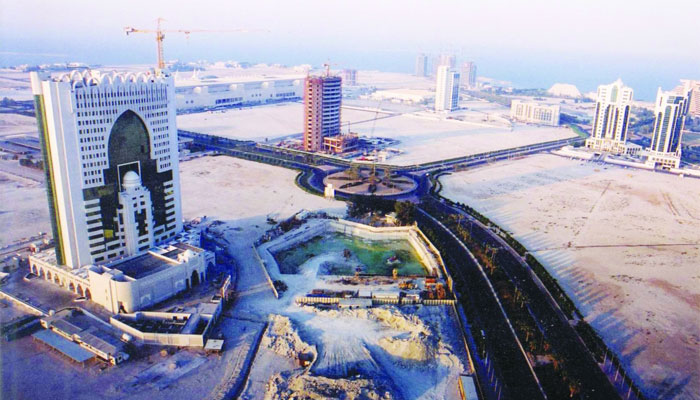Gulf Times Exclusive
Joey Aguilar/Staff Reporter
Doha has changed so much that the new city would be unrecognisable to those who left Qatar some two decades ago, says Dedie Obaidan, an American woman married to Badr Obaidan, a Qatari businessman.
The Mexican-American, now a mother of four, recalled the time she first came to Qatar in 1990. She has witnessed how a tiny nation made its mark in the regional and international arena in just a short period of time.
“My impression when I came down the plane, I saw a lot of desert and there were small houses,” Obaidan told Gulf Times. “But a lot of things have changed since then.”
She said like her, most of the women from the West married to Qataris and who arrived in the country in the early 90s saw this enormous transformation.
Obaidan has also seen how these developments have influenced the culture and traditions of Qataris and how their lives have changed.
Citing both positive and negative impacts of Qatar’s development, she said in the older days people had "enough money to buy what they needed."
She said the present generation would find the old life "too hard because life was so different then." Today’s children are used to modern amenities and the changes that have taken place in the country. A lot of things changed quickly."
She said now English can be heard more frequently than Arabic, probably because many children now study in English-medium schools.
| "As a sailor, he (father of of Badr Obaidan) used to go to Iran and India to trade things. He was a very strong man. But now, many work in offices while expatriates usually do all the physical work." |
According to her if people who left Qatar 20-25 years ago were to visit the country now, they would not be able to recognise many things. “Such is the transformation I find it is good and it is bad; bad in my sense because the country's population is becoming very big, lots of people and less Arabic, less Qatari people. We are quite different from what the old tradition was.”
Nowadays, she said the youth have more money to buy various things such as cars “so they drive.”
“They do not know what it is like to work for their money and buy a car. So they crash the car and they say my mom is gonna get me another one - in the older days, I think like my husband, they took care of the money. They didn’t spend so much."
Children are raised in a rich life as opposed to what it was during the childhood of her husband. "Qataris now get married and many of them have the means to buy a house."
In the 90s, many couples lived in apartments since they were just starting to make money. Many of them did not have had the luxury to buy and live in a villa.
Obaidan saw how hard her father-in-law worked to earn a living. As a sailor, he used to go to Iran and India to trade things. “He was a very strong man. But now, many work in offices while foreign workers usually do all the physical work.”
“It is not the older days, right? So we are a little spoiled,” she said in jest.
But despite these changes, Obaidan said she considered Qatar her first home; and America second.
"I feel now I'm lost in America, I go back and I feel like so much has changed there too, systems have changed. I feel more comfortable in Doha," she said. "So I feel like America is my holiday destination."
The couple have two sons and two daughters and an extended family including her parents in-law.
"My mom and my dad were wonderful. They love my in-laws so much, my in-laws treat me like their own daughter," she said. "I never felt like an outsider."
Obaidan's sisters-in-law visit the US to spend time and bond with her family.
She was one of the first few women to get a driver's licence in Qatar.
Besides building her own house, she also manages a Mexican restaurant in Doha.
"My life has been so really good and I don’t think I can get any luckier while a lot of my friends are divorced in America," Obaidan said. "They say we never thought we will see you happy, and I say yeah, I followed my heart."

